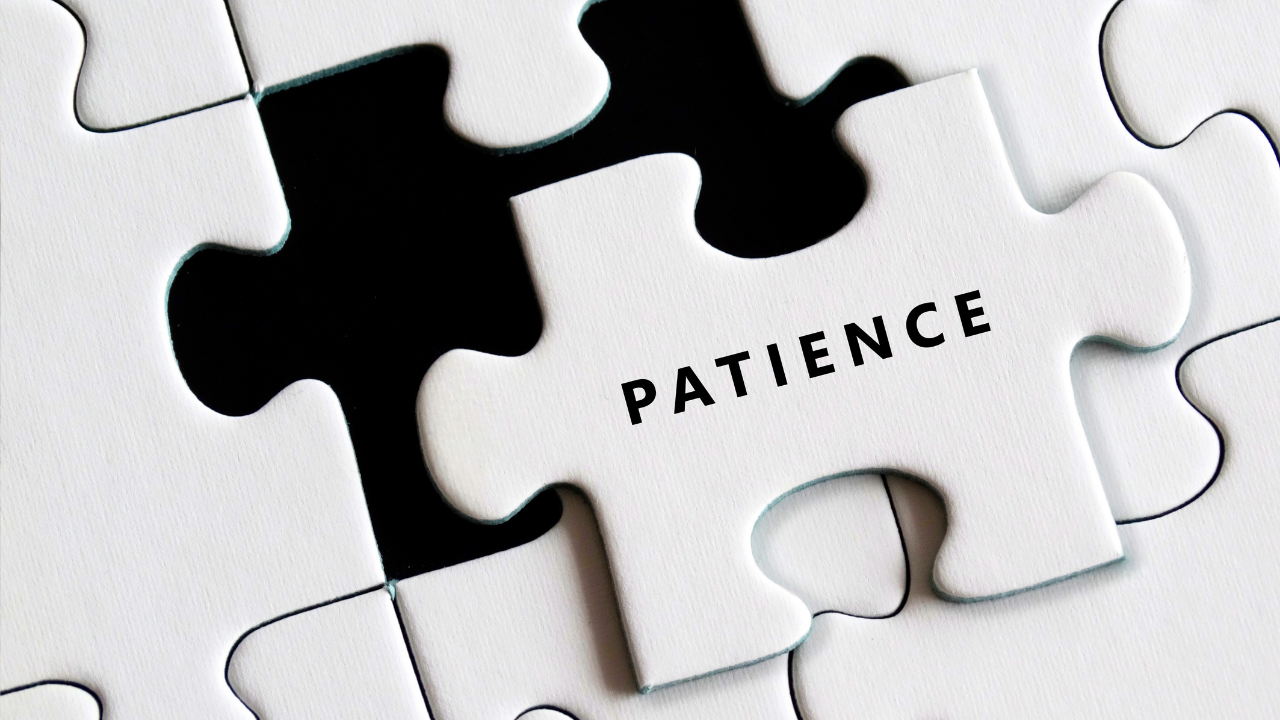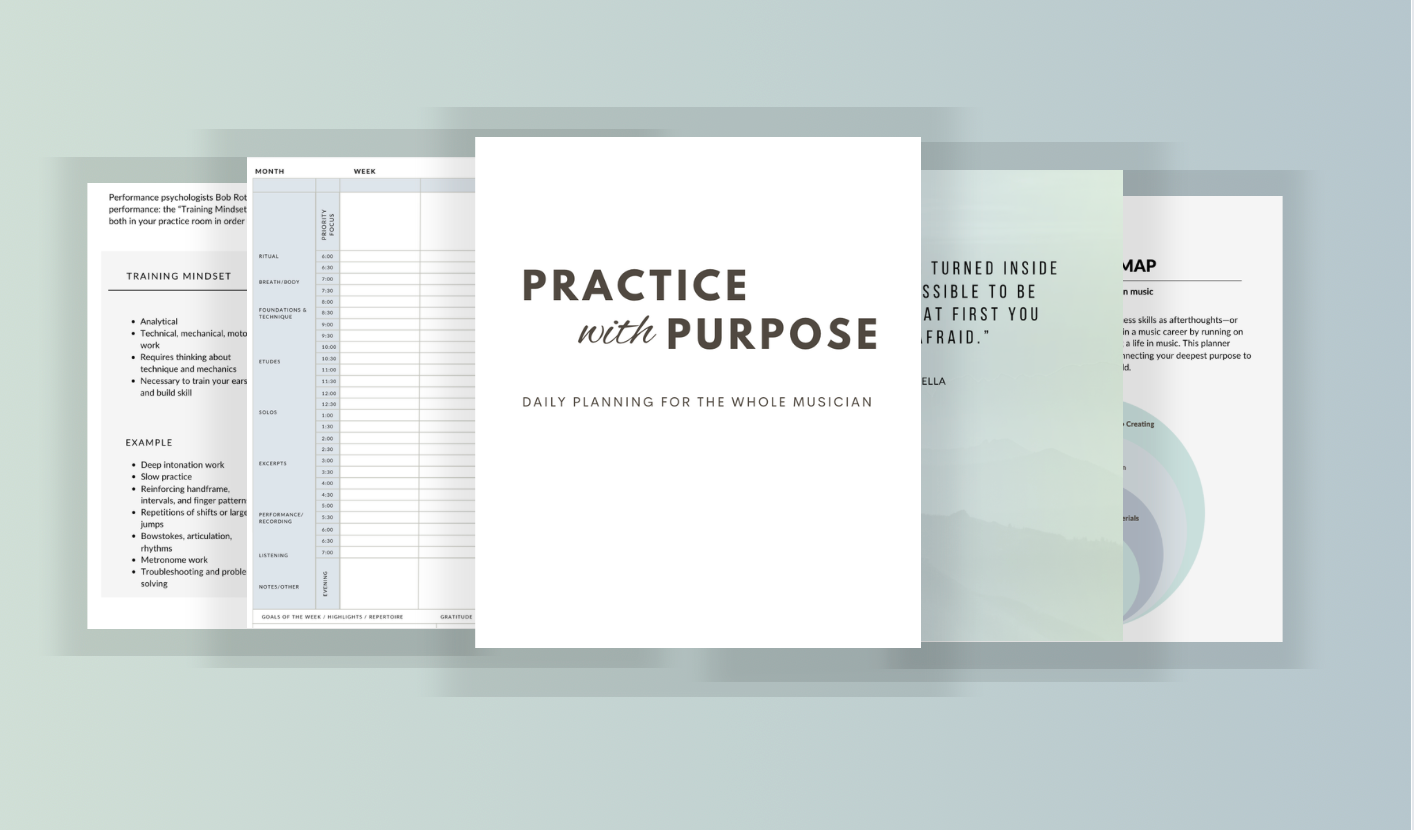4 ways to build patience & track your progress!

A student recently asked me what my #1 piece of advice would be for myself when I was in school.
A few things came to mind…
- Practice more.
- Look at the big picture more often.
- Take care of your health and your energy.
- Try not to get stuck in the comparison game.
- Know that your success will be about so much more than how you play.
But really, I think this is the bit of advice I truly wish I could have plastered all over my dorm room:
Some things just take more time.
When I look back on my days in school, the memory of being frustrated that things weren’t happening quickly enough is very present in my mind. The articulation wasn’t getting fast, fast enough. Performing wasn’t getting comfortable fast enough. Daphnis wasn’t getting fast enough fast enough.
A few things would happen when I listened to my brain saying it wasn’t happening fast enough including getting frustrated (buzz kill) and very often, deciding I needed to change course, revamp the plan, add another practice session, etc.
I would often conclude, as maybe some of you do, that I wasn’t doing enough.
I hate to be the bearer of such unexciting news - but sometimes more won’t crack the code. Changing the plan won’t, either.
Some things just need more time.
If I could have learned to trust the course and track my progress in objective ways, I think I would have been more efficient and less likely to cave into nagging thoughts of “not fast enough”, “not good enough”... etc, you know the thoughts.
So, with that, here are 4 ideas for ways to build patience and track your progress:
- Listen to oldish recordings. We always talk about recording. But, it’s also important to listen to your recordings from a month, 6 weeks or 3 months ago. Little progress is made day to day, so if you’re only listening to your recordings immediately or a few hours after you make them, it’s probably going to be hard to ever recognize significant progress!
- Track your practice. Remind yourself what you've actually been doing. Sure, you may have been carrying that articulation exercise around with you for 2 months but how much time have you really dedicated to it? Can you make a solid plan to commit to doing X thing for X amount of time, and track it for say, 30 days? And then evaluate if it’s working or not?
- Trust the effort - the results aren’t your business everyday. Man is this one I wish I would have understood earlier… don’t look for improvement each day!! Focus on the plan and remember that we need time for things to settle into our brain and body. We’ve all had that experience where all the sudden, one random day, what a teacher said 6 months ago clicks. Please remember this is a real thing that happens!
- Give ideas a chance. This one is huge with so much information available to us these days. There are so many good exercises out there. So many good ideas. While it can be great to get new ideas, you’ve got to constantly walk the line between becoming a dabbler in many ideas and putting your blinders on to new ideas. Neither will serve you very well!
Here’s to a beautiful week of patience and giving yourself time! We hope these tips help you feel centered, hopeful and on track.


